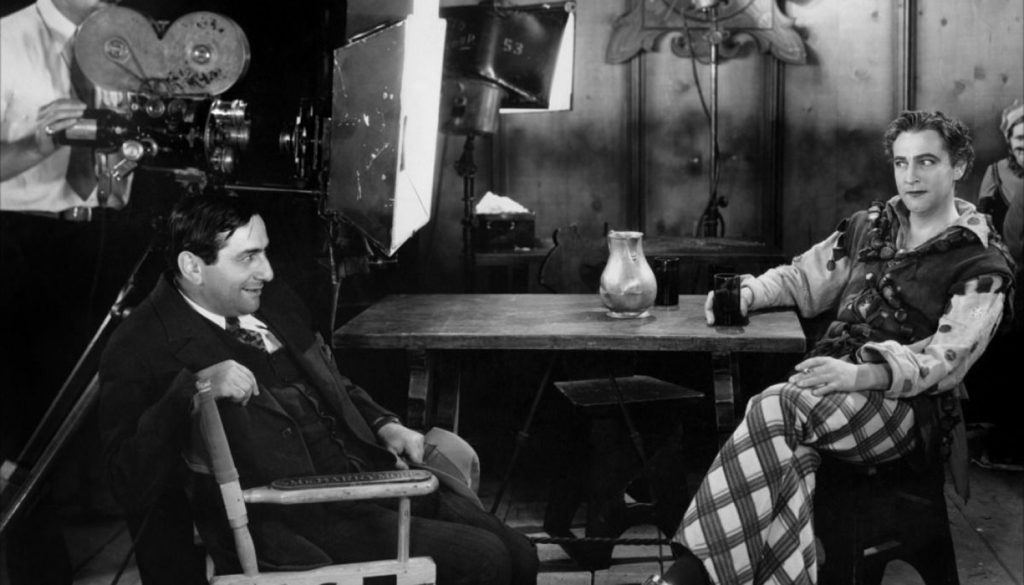The Academy Awards are behind us. The winners and losers have celebrated or licked their wounds and all the right people have celebrated all the right movies. We could go into the rantings of Joaquin Phoenix, but my printer ink is low.
There were a lot of praiseworthy films this year — must be a leap year or something — but the overkill on adulation is always off-putting to me. Of course, if I was ever up for an award of that stature, I’m sure I would have been spending most of my time dusting off the empty mantel space waiting to perch the golden statue in its place of honor. I’m still dusting.
But it’s lowbrow entertainment I’m thinking of now. And it is lowbrow entertainment I’m going to praise due to my just completed 10-day ordeal, otherwise known as jury duty. Saying the very words “jury duty” is like showing a vampire a crucifix.
I’m still trying to wrap my head around the experience — a double-murder trial — and will in short order do so here. But in the midst of this experience in civics, the difference between brow entertainment and the kind of award-winning stuff Oscar statues are made of came into sharper (pardon the pun) focus.
This is not a new idea. Way back in the distant past of Hollywood, there was a separation of comedy and drama. Important, serious directors like John Ford and William Wyler won awards, while directors noted for their comedic touches, like Ernst Lubitsch and Preston Sturges, made “lightweight” fare that could be categorized as screwball or romantic comedies. Lubitsch’s style was so well-defined they had to coin a phrase for it: the “Lubitsch touch.”
Lubitsch was born in Germany and came to America in 1922, just ahead of the Nazi takeover of his homeland. But it’s no stretch that by 1922 he was feeling the distinct hot breath of growing anti-Semitism there. Fellow German-speaking filmmaker and refugee Billy Wilder came to America with the Nazi death machine closer to his heels, but both men, though having diretced many a dramatic epic, were most famous for their comedies.
A Chicago-born colleague of Wilder and Lubitsch was Preston Sturges. He was the American version of looking at the world through a “lighter” lens, even if the subject matter was sometimes a darker topic. In Sturges’ masterpiece, “Sullivan’s Travels,” a fictitious movie director, famous for making screwball comedies, yearns to be taken seriously by his peers and critics. He is determined to make an “important” film. This leads him on a Quixotic quest with plenty of dramatic twists, climaxing in a dingy barn where, due to a series of unfortunate events, Sullivan, the director, is part of a chain gang that has been marched into the barn as part of a Sunday break from that brutal existence.
The prisoners take their seats and the clickety-clack of a movie projector comes to life. On the bedsheet of a movie screen they see a silly Disney cartoon, and as the serious director, now a victim of his own making, looks around, he sees his fellow inmates forgetting their troubles and laughing at the antics of a silly and nonimportant piece of filmmaking, and he understands.
Ten days of a murder trial with requisite autopsy photos gave me all the insight I ever want to have of the worst humankind has to offer, which led me to my very own “Sullivan’s Travels” moment. I came home from a particularly brutal day of trial testimony and I was burdened; I was sad and depressed. I ate some dinner, and I fixed myself one, only one, stiff drink.
Then I flicked on the TV to see if there was something that could carry me away. The last thing I wanted to see was some heavy drama about people with serious problems, the kind of movies and television shows that win Oscars and Emmys.
Call it divine intervention, but it just so happened that Turner Classic Movies was showing a double feature of “The Road to Morocco” (a silly “road” picture with Bob Hope and Bing Crosby) followed by “The Princess and the Pirate” (a silly Bob Hope movie about silly pirates). I settled in, and these very basic, very silly movies were like a tonic, or maybe it was the stiff drink.
When you experience authentic ugliness, drama, and tragedy, as I did in a court of law, you realize that no matter how dramatic or profound a motion picture may be, it is, in the end, not real life and pales in comparison. How ironic that it is the silly movies, the movies that were intended to make people laugh as they left behind the world on fire in a global war, can still do exactly what they were meant to do and illicit the real reaction of simple joy.
As I sat and enjoyed these two old comedies, I forgot about all the grimmer things that awaited me back in that courtroom. I was thankful God knew what he was doing when he infused us with a sense of humor.

